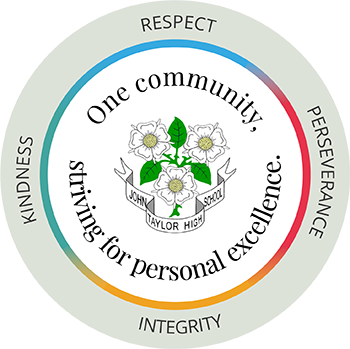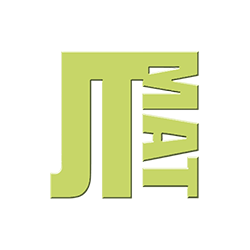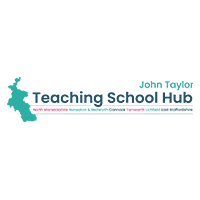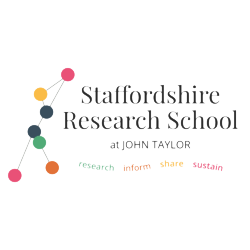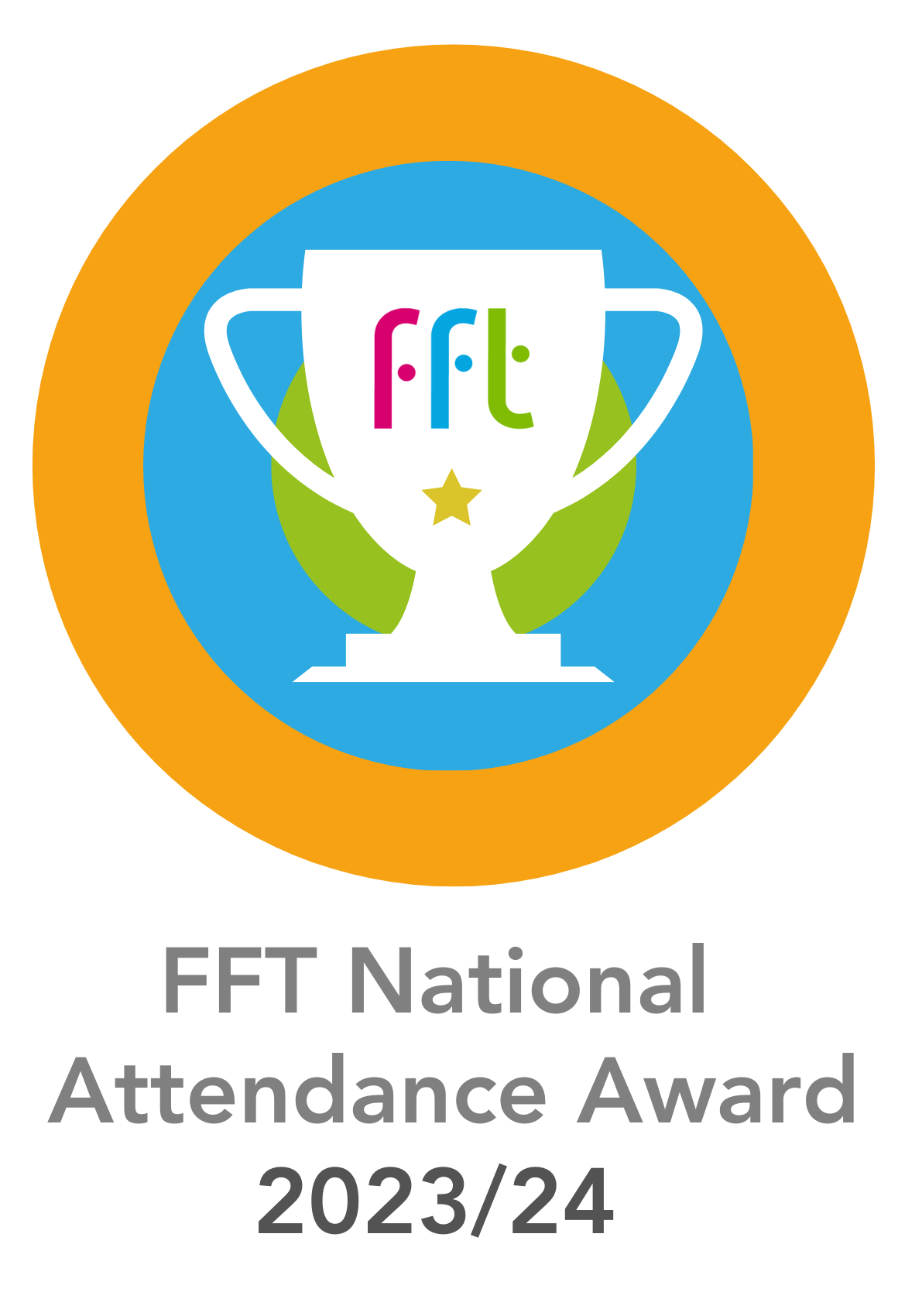16-19 Programme
Sixth Form: Programme of Study
The Study Programme at John Taylor High School’s (JTHS) Sixth Form is followed by all of our Sixth Form students and is made up of the following components:
Substantial Academic Qualifications:
All students will choose qualifications which are equivalent to 3 or 4 subjects. These can be A Level, Level 3 Vocational courses or a combination of both A level and Vocational qualifications. For a full list of qualifications offered please see our prospectus.
A Levels: Students can choose three or four A Level subjects dependent on prior attainment from a range of different subjects.
Vocational Level 3 Courses: Students can choose one, two or three subjects. We offer a range across six different subject areas.
GCSE Maths and English: All students who have not reached a grade 4 prior to joining us will be required to resit these qualifications. Students who have achieved a grade 4 in English Literature but not achieved a grade 4 in English Language are encouraged to resit English Language to ensure that they meet the entry requirements of any future Post 18 application.
Extended Project Qualification (EPQ): Students can choose to undertake the EPQ as an additional qualification. This allows students to show a depth of study in one particular area of their studies which enhances their UCAS and job applications.
Tutorial/enrichment programme (including work experience):
This is an integral part of the Sixth Form curriculum and is delivered predominantly during a 25-minute morning registration and a weekly 50-minute tutorial period.
The tutorial/enrichment programme aims to provide students with opportunities to consider both personal issues and those issues concerning them as citizens in the wider community – at the local, national, and global level. The programme involves several outside agencies or speakers coming into school, to speak to small groups or larger numbers of students depending on the topic being delivered.
Through the Post 16 Personal Development programme we aim to develop:
- Students who embody our school values of respect, kindness, perseverance, and integrity and thrive as positive citizens in the school and wider communities (Lessons 1, 2, 3, 7, 12, 39, 40, 41, 42, 43, 44, 51)
- Students who understand how to look after their health and wellbeing and to support the wellbeing of others including identifying and manging risk. (Lessons 2, 9, 10, 11, 13, 15, 21, 28, 37, 38, 39, 45, 46, 48, 50, 52, 53, 56, 57, 58, 60, 61, 66)
- Students who understand how to form and maintain respectful, inclusive, healthy relationships and have an awareness and respect of all relationships. (Lessons 4, 5, 6, 7, 8, 14, 59, 60, 61)
- Students who understand what British culture is e.g. democracy, equality but has an understanding of other cultures of the world. (Lessons 22, 23, 24, 25, 40, 41, 42, 43, 44, 51, 58, 62)
- Citizens who have a secure understanding of their moral and personal duty to be a citizen in the UK and wider world. (Lessons 40, 41, 42, 43, 58, 59)
- Students are exposed to a plethora of post-18 pathways to prepare them for future success. (Lessons 17, 18, 19, 20, 34, 35, 36, 63, 65)
- Students who develop and practice the skills and characteristics required to succeed academically and to prosper in the wider world. (Lessons 1, 2, 3, 17, 18, 19, 20, 28, 39, 45, 47, 62, 63, 64, 65, 66, 67)
- Students who are informed and prepared emotionally and academically for the next stage of their lives. (Lessons 1, 2, 3, 17, 18, 19, 20, 27, 31, 32,33, 47, 48, 49, 50, 51, 63, 64, 65,)
The above builds on what students studied during Personal Development in KS3 and KS4. In these Key Stages the Personal Development curriculum revolved around six themes. The following table shows how the Sixth Form Personal Development Curriculum fits into these categories in order to reinforce and expand students knowledge and understanding of these areas.
|
Category |
Lessons covered in |
|
Careers: Your Future |
1, 2, 17, 18, 19, 20, 27, 31, 32, 33, 34, 35, 36, 39, 47, 49, 63, 64, 65, 66, 67 |
|
Rights Responsibilities and British Values |
12, 22, 23, 24, 25, 58, 62 |
|
Staying Safe Offline and Online |
9, 10, 11, 15, 21, 46, 48, 51, 53, 56, 59, 60, 61 |
|
Health and Wellbeing |
2, 3, 9, 11, 13, 28, 37, 38, 39, 45, 50, 52, 53, 57, 58, 59, 60 |
|
Relationship and Sexuality Education |
4, 5, 6, 7, 8, 14, 57, 58, 59, 60 |
|
Celebrating Equality and Diversity |
12, 40, 41, 42, 43, 44, 62 |
John Taylor High School Sixth Form also welcomes a variety of guest speakers into school to provide our students with in insight into employability skills.
Students are exposed to a range of post 18 pathways as part of the tutor programme as well as through curriculum areas. The Form Tutor plays an integral part in supporting students with the application process and next steps.
Work experience: Opportunities for virtual work experience are shared throughout the year, in addition to a dedicated week of face-to-face work experience which takes place in July of Year 12. Students are supported in applying for work experience by accessing a database of over 1000 employers and utilising an electronic system that overseas the whole process from application to evaluation.
Other non-qualification activities:
Our sixth form also offers a wide range of opportunities outside of lessons to help students to fully immerse themselves in the life of the school/wider community and to develop confidence, character and resilience. Activities include: Higher Education and Apprenticeship talks, Sixth Form Leadership, Reader Leader Scheme, mock interviews, school productions, Rotary Youth Leadership Award, Holocaust Trust, Mentoring, Bar Mock Trial Competition, Sixth Form Management Games, ICAEW BASE Competition, Duke of Edinburgh, and sports coaching to name a few.
In 2024, an improved enrichment programme has been offered. Students have the opportunity to either complete additional qualifications in Sports Leadership or Extended Project or participate in a range of activities such as Music, Cooking for enjoyment, Sport and Fitness, Finance, Culture and Community on a rotation basis. This in order to help prepare students for the next steps in their lives.
